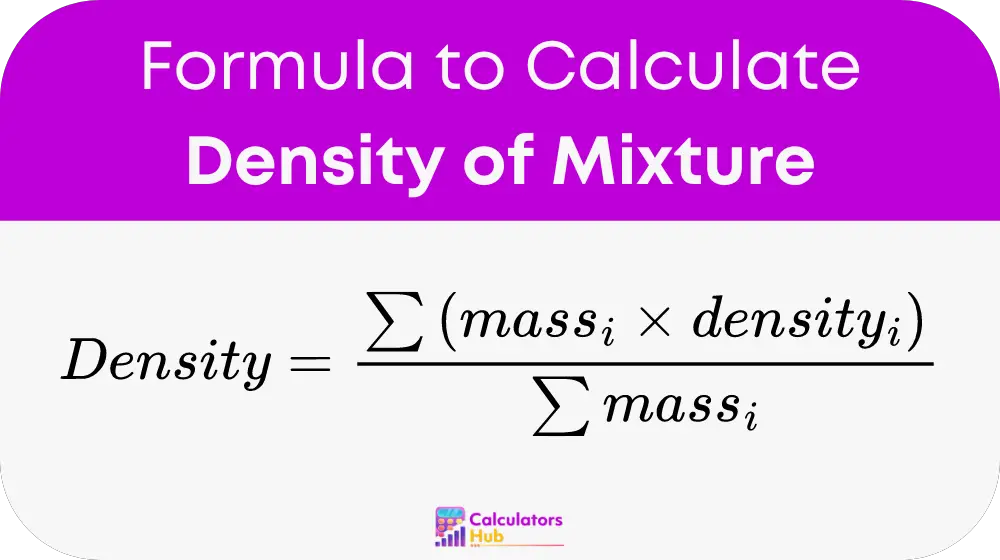The Density of Mixture Calculator is a tool designed to determine the density of a mixture from various substances with known densities and masses. This calculator is invaluable in fields like chemistry, materials science, and engineering where accurate mixture compositions are crucial. Users can input the masses and densities of the components to simplify the process of calculating the overall density of the mixture.
Formula of Density of Mixture Calculator
To calculate the density of a mixture, use the following formula:

where:
- density_mixture is the density of the mixture.
- mass_i is the mass of each component in the mixture.
- density_i is the density of each component.
This formula shows how different proportions and densities of components affect the overall density of the mixture.
Table for General Terms
| Term | Definition | Relevance to Calculator |
|---|---|---|
| Density | Mass per unit volume of a substance. | Fundamental to calculating mixture density. |
| Mass | Amount of matter in an object, typically in grams. | Used in the numerator of the formula. |
| Volume | Amount of space an object occupies. | Inferred from mass and density. |
| Component | Individual substances that make up a mixture. | Each has a unique density and mass. |
Example of Density of Mixture Calculator
Imagine a mixture of water and alcohol where water has a mass of 150 grams and a density of 1 g/cm³, and alcohol has a mass of 100 grams with a density of 0.789 g/cm³. Using the formula:
density_mixture = ((150 * 1) + (100 * 0.789)) / (150 + 100) = 0.922 g/cm³
This example illustrates how the calculator simplifies finding the density of a mixture.
Most Common FAQs
Understanding the density is vital for quality control in manufacturing, pharmaceutical formulations, and engineering material selection.
Yes, it is versatile and applicable to any mixture where the densities and masses of components are known.
It is designed for accuracy in both small-scale laboratory experiments and large-scale industrial applications.